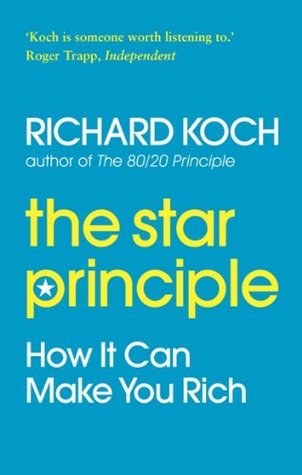More on this book
Kindle Notes & Highlights
To know much is not to be wise. Euripides
What is a star venture? It has two qualities. One, it operates in a high-growth market. Two, it is the leader in that market.
What will make you successful? Positioning will. A star business will. In terms of improving the odds, nothing else comes close.
A star business has two attributes: ★ it is the leader in its market niche; and ★ the market niche is growing fast, at least 10 per cent a year.
The thing that matters most is how customers in the niche vote with their money.
There is another clue as to whether or not a niche market is viable, and it is simply this: is the niche highly profitable? Does it generate a lot of cash? Leadership in a niche is not valuable unless, sooner or later, the niche is very profitable and gushes out cash.
A venture is not a star unless the niche where it operates is growing by at least 10 per cent a year. More precisely, the niche must grow at least 10 per cent a year, on average, over the next five years, and preferably for decades.
To have a valuable firm in the future, whatever its size and profitability today, all you need is leadership in a fast-growth niche. Provided the firm is tolerably well run, leadership will make the firm profitable and cash-positive. Growth will make it big. If you grasp these two ideas, you will have huge insight into the future. That is all it takes to find a wonderful place to work or to put your hard-earned cash.
You can put just as much skill and effort into a non-star as into a star business. But the results will be totally different. The star business will be much easier to build and much more rewarding.
My own experience is that, as I have made more money and started more successful ventures, the less I have worked. Hard work is either a red herring, or negatively correlated with success.
What is irrefutable is that most very successful ventures are star businesses, leaders in high-growth niches.
The secret of success is to know something nobody else knows. Aristotle Onassis
Recall what a star business is. It is the largest company in its niche. That niche must also grow fast, at least 10 per cent a year over the long haul. Both conditions must apply, or it isn’t a star.
Typically, star-venture start-ups create their own niche. If the niche proves viable, the venture starts in the wonderful position of ‘born leader’.
Let me tell you a secret. Most ‘brilliant’ managers and ‘superstar’ entrepreneurs perform miracles not because of their brilliance, but because they are in the right place at the right time. Almost anyone reasonably competent, sitting where
It’s pointless to claim you are better: you have to prove that you are different, and the difference has to appeal.
To stand a good chance of creating a star you must not only be the first in the niche you create, but also the first with your key consumer benefit.
To succeed, a venture has to do something different. It has to be a leader. And to be really successful you have to be a star business - not just number one in a niche, but first in a fast-growth niche.
To attain knowledge, add things every day. To attain wisdom, remove things every day. Lao-Tzu
Step 1: Divide the market.
Step 2: Select a high-growth niche.
Step 3: Target your customers.
Step 4: Define the benefits of the new niche.
Step 5: Ensure profitable variation.
Step 6: Name the niche you plan to lead.
Step 7: Name the brand in a way that complements the category name.
‘Betfair’ is a great brand, because it says clearly and succinctly what is the benefit of using the firm. ‘Flutter’ was a poor brand, connoting a casual wager undertaken purely for fun: not the target market at all.
Many great niches have been created with ‘affordable indulgencies’, a more expensive version of a cheap product.
Toyota created an extremely profitable new category with the Lexus. It’s a luxury car with the performance of a BMW or Mercedes, but at a much lower price. Lexus comprises 3 per cent of Toyota’s sales but a third of its profits.
What I do, I understand. Confucius
What determines the long-term value of a star business? Very largely, the growth. OK, the profit margin matters, but even doubling the margin has far less influence on what the business is eventually worth than the growth rate and hence the ultimate level of sales.
Hire to raise the average. Ideally, each new recruit should be in the top 10 per cent of existing employees. That way the firm will constantly get better and better.
any firm not harried and pressed by extremely demanding owners will never reach its full potential, likely nowhere near it.
All progress, said George Bernard Shaw, comes from unreasonable people.
What will make you successful is being in the right place. Finding the right place to work or invest. Finding an unusual type of business, but one you can always find if you know exactly what to look for.
Growth is everything. All progress comes from unreasonable people holding unreasonable expectations.


